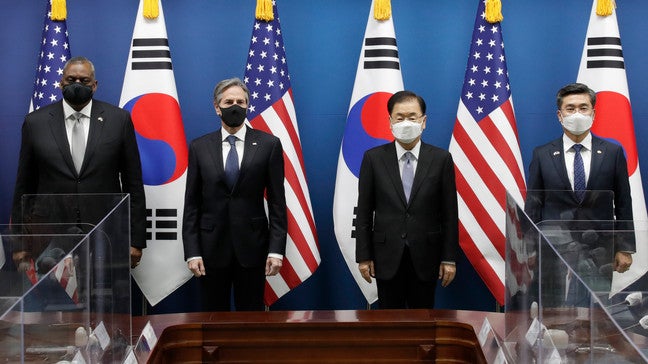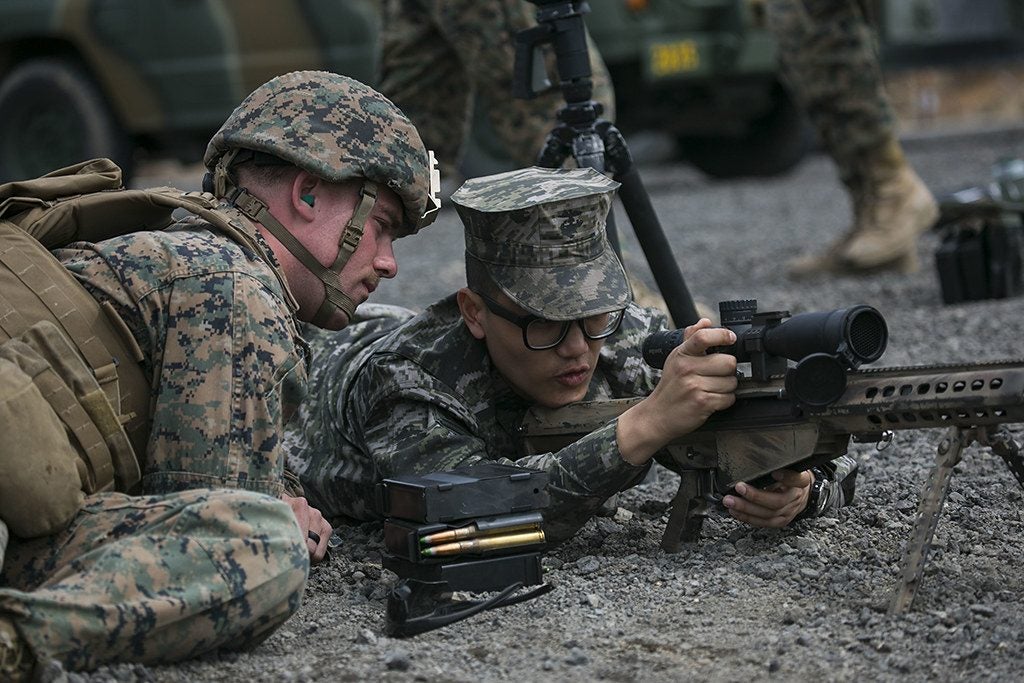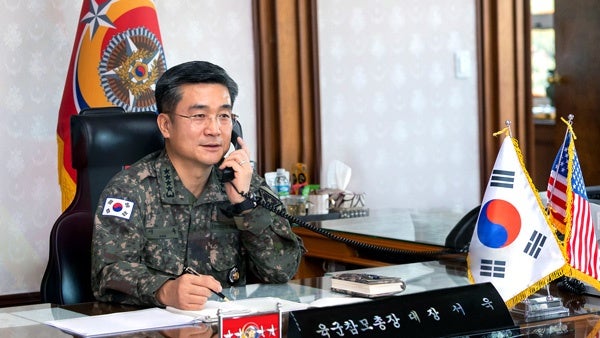Korean Defense Minister Talks of Strengthening Ties with Japan
The relationship between South Korea and Japan has never fully healed from the fallout of Japan’s colonization of the peninsula and has deteriorated even further in recent months. In regards to this history issue, the Japanese government tends to believe it has apologized enough while Korea’s begs to differ. One key source of tensions is how Japanese textbooks downplay their countries’ war crimes and imperialism. Another is the recent boycotts and rulings against Japanese companies which had been accused of links with firms that exploited Koreans between 1910 and 1945. While there is no economic, diplomatic or strategic benefit to be gained from this dispute for either of the countries, a tough stance appeases the nationalist segments of both countries’ electoral base.

Relations reached a new low when the most recent iteration of Korea’s defensive white paper removed the descriptor “partner” when mentioning Japan. Unexpectedly, however, following talks with American Secretary of State Antony Blinken and Secretary of Defense Lloyd Austin, the ROK’s Minister of National Defense Suh Wook went on to publicly call for increased defense cooperation with Japan and emphasizing the will to continue military talks despite the controversies regarding history. In an interview with Bloomberg, Suh Wook said that:
“What is protecting the Korean Peninsula is centered around the Korea-U.S. alliance, but we believe the Korea-Japan security cooperation is also a valuable asset, which is why we need to maintain this.”
The ROK is currently embarked on a campaign to strengthen its military capabilities and is reportedly getting closer to having wartime Operational Control Authority on the peninsula transferred from the US. This push for independent capability comes as South Korea struggles to balance its relationship between America (its main security guarantor) and China which remains its biggest trading partner and is often seen as key to resolving issues with North Korea.

Nevertheless, amid increased tensions between China and America, this balancing act becomes harder by the day. Visiting Tokyo before traveling to Seoul, Blinken and Austin were joined by their Japanese counterparts in expressing concern over China’s “aggressive actions”. On the domestic front, an October Gallup survey found that 75% of South Koreans have a negative view of China. Moreover, even with increased military spending, demographic changes ultimately mean the South Korean army must shrink regardless of government policy.

